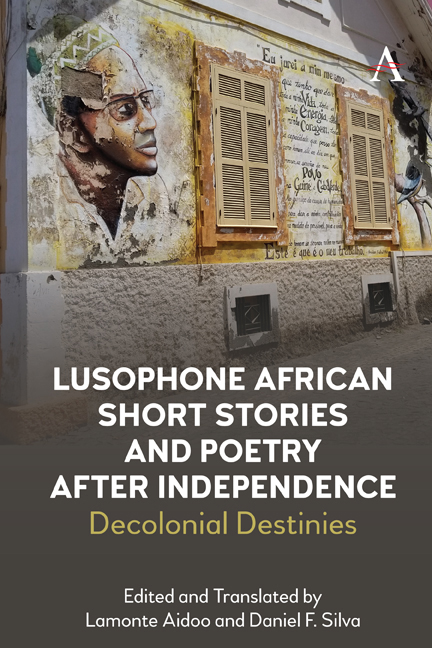Chapter 22 - Tomás Medeiros
Published online by Cambridge University Press: 23 February 2022
Summary
Introduction
António Alves Tomás Medeiros, best known as Tomás Medeiros, was born in 1931 in São Tomé, capital of the then Portuguese colony São Tomé e Príncipe. His life's journey is illustrative of both the institutional and cultural mechanisms of Portuguese colonialism as well as of the modes of anticolonial struggle against it and the quest to define sovereignty. He completed his elementary education in São Tomé before moving to Huambo, Angola (then New Lisbon), where he concluded his secondary studies. He then pursued university studies in Lisbon in the 1950s, where he became a member of two important student organizations in opposition to Portuguese colonialism, and where he cultivated his own conceptualizations of anticolonial struggle. He helped create the União Geral dos Estudantes da África Negra Portuguesa (General Student Union of Black Portuguese Africa), and also had a leadership role in the famed Casa dos Estudantes do Império (Students of the Empire) alongside other notable names of Lusophone African struggles for independence such as Amílcar Cabral, Agostinho Neto, and Eduardo Mondlane, among many others.
As the armed anticolonial struggle intensified in Angola, Medeiros exiled himself from Portugal in order to join the Movimento Popular de Libertação de Angola (People's Movement for the Liberation of Angola, MPLA) while also completing his doctorate in medicine at the University of Simferopol in the then Soviet Union (present-day Crimea). There, he helped create and lead the African Students Federation. From his work with the MPLA, he helped found the Movimento de Libertação de São Tomé e Príncipe (Movement for the Liberation of São Tomé e Príncipe, MLSTP). Following independence, he grew disenchanted with the political and economic paths taken by the anticolonial movements-turned-governing parties, and eventually was exiled in Portugal where he resided until his death in 2019.
In addition to his transcontinental work in anticolonial organizing, he is known as one of the most celebrated San Tomean and Lusophone African poets, with his works traversing several periods: the anticolonial struggle, independence, and the present day. Throughout and across these periods, his poetry has figured prominently, appearing in colonial anthologies of Lusophone African poetry such as No Reino de Caliban (In the Kingdom of Caliban), published in 1975 but composed of poems from the 1950s and 1960s, and Antologia de poesia da Casa dos Estudantes do Império: 1951–63 (Poetic Anthology of the Students of Empire: 1951–1963).
- Type
- Chapter
- Information
- Lusophone African Short Stories and Poetry after IndependenceDecolonial Destinies, pp. 229 - 236Publisher: Anthem PressPrint publication year: 2021



